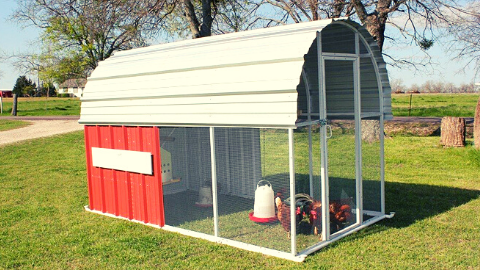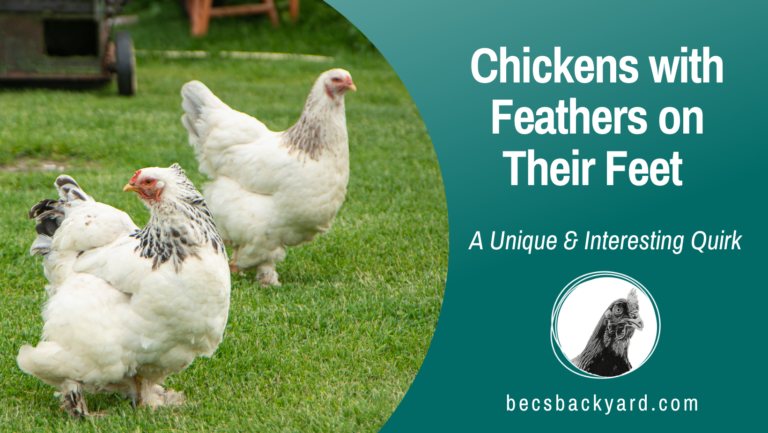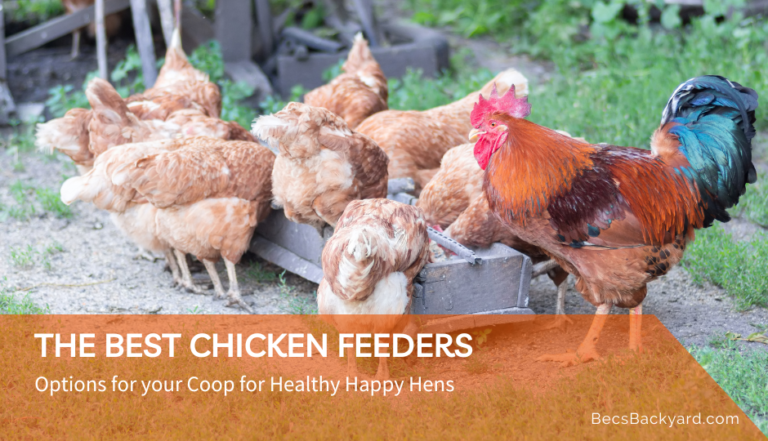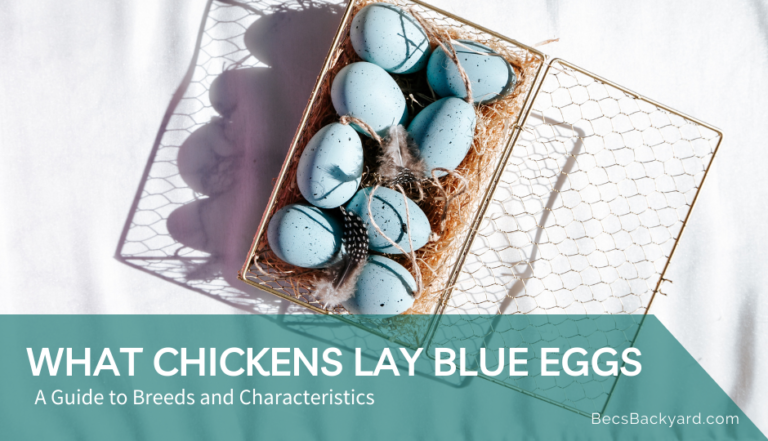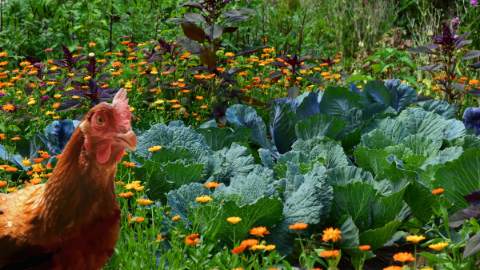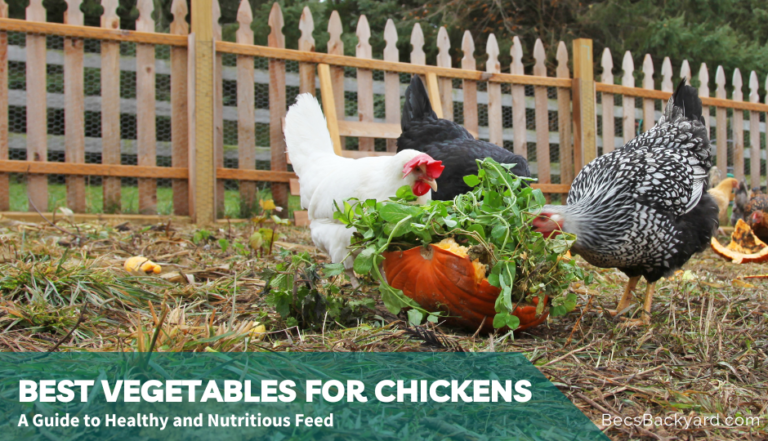Identify and Avoid Toxic Plants for Chickens
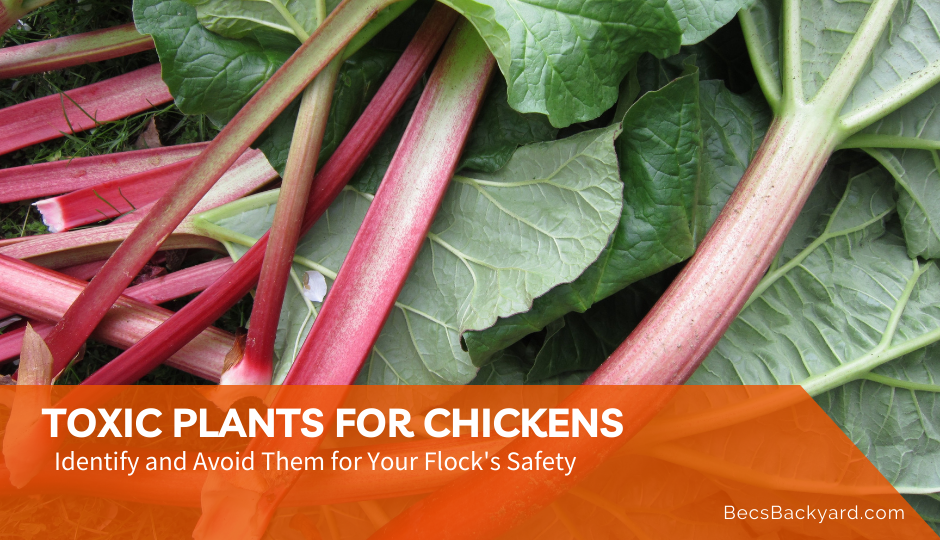
Toxic plants can be a serious danger to chickens. Chickens are curious creatures and will often peck at anything that catches their attention, including poisonous plants. While chickens are generally savvy about what they eat, it is still important for chicken owners to be aware of the plants that can harm their flock.
Some of the most common toxic plants for chickens include:
Foxgloves
Apricots
Black Henbane
These plants contain toxic compounds that can lead to seizures, low blood pressure, and breathing problems. Ingesting these plants can be fatal for chickens, so it is important to keep them away from any areas where these plants may be growing.
It is also important to note that some plants may not be toxic to chickens in small amounts, but can be harmful if consumed in large quantities. As a chicken owner, it is important to be familiar with the plants in your yard and to take steps to keep your flock safe. By being aware of the toxic plants in your area and taking steps to keep your chickens away from them, you can help ensure the health and safety of your flock.
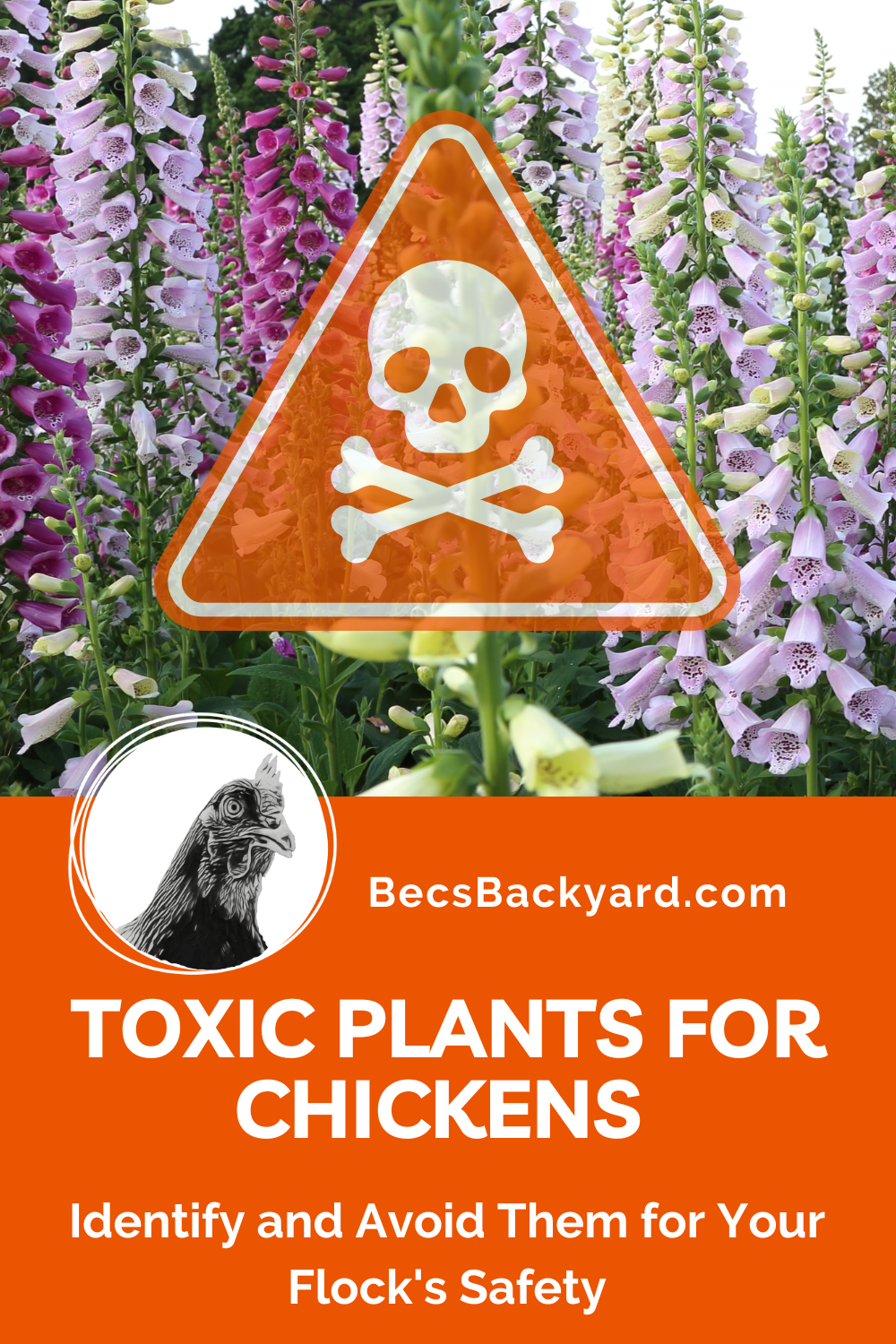
Understanding Toxic Plants for Chickens
As a chicken owner, it is essential to understand the plants that are toxic to your birds. Chickens are curious creatures and will peck at anything they come across, including plants. Some plants can cause mild symptoms such as diarrhea and vomiting, while others can be fatal.
Toxic plants contain chemicals that can cause harm to the chicken’s digestive system, nervous system, and other vital organs. It is crucial to identify and remove these plants from the chicken’s environment to keep them safe and healthy.
Here are some common toxic plants for chickens that you should be aware of:
1. Nightshade
Nightshade plants, such as the black deadly nightshade, contain solanine, a toxic alkaloid that can cause severe symptoms such as seizures, coma, and death in chickens.
2. Rhubarb
Rhubarb contains oxalic acid, which can cause kidney damage and other health problems in chickens.
3. Castor Bean
Castor bean plants contain ricin, a potent toxin that can cause respiratory failure and death in chickens.
4. Daphne Berries
Daphne berries contain toxic compounds that can cause vomiting, diarrhea, and other gastrointestinal symptoms in chickens.
5. Azalea
Azaleas contain grayanotoxins, which can cause a range of symptoms such as salivation, vomiting, diarrhea, and seizures in chickens.
It is essential to keep your chicken’s environment free of toxic plants. If you suspect that your chickens have ingested a toxic plant, seek veterinary care immediately. Early intervention can save your chicken’s life.
Other Common Toxic Plants for Chickens
As a chicken owner it is our responsibility to ensure that the environment that we keep our feathered friends in does not contain toxic plants for chickens. Due to their nature they will peck at things that are growing in their backyard, unfortunately, some of the plants that they might find attractive can be toxic to them. As a chicken owner, it’s essential to know which plants are harmful to your feathered friends. Here are some common toxic plants for chickens:
Foxglove
Foxglove is a beautiful plant that can be found in many gardens. However, it’s toxic to chickens, and even a small amount can be lethal. Foxglove contains digitalis, a chemical that affects the heart, causing low blood pressure, slow heartbeat, and shock. Symptoms of foxglove poisoning in chickens include vomiting, diarrhea, and difficulty breathing.
Rhubarb
Rhubarb is a common garden plant that is often used in pies and other desserts. However, its leaves contain oxalic acid, which can be toxic to chickens. Symptoms of rhubarb poisoning in chickens include weakness, lethargy, and difficulty breathing.
Nightshade
Nightshade is a group of plants that includes tomatoes, potatoes, and eggplants. While these plants are safe for human consumption, they can be toxic to chickens. Nightshade contains solanine, a chemical that can cause digestive issues, weakness, and difficulty breathing in chickens.
It’s important to note that this is not an exhaustive list of toxic plants for chickens. As a chicken owner, it’s your responsibility to research and identify any plants in your garden that might be harmful to your birds. If you suspect that your chickens have ingested a toxic plant, contact your veterinarian immediately.
Symptoms of Toxic Plant Ingestion
If you chicken ingests toxic plants there will be some symptoms that will help you recognize what has happened. It’s important to know the symptoms of toxic plant ingestion so that you can act quickly if you suspect your chickens have eaten something harmful.
Changes in Egg Production
One of the first signs that your chickens may have ingested a toxic plant is a sudden decrease in egg production. Toxic plants can affect a chicken’s reproductive system, causing a decrease in egg production or even stopping it altogether. If you notice a sudden decrease in egg production, it’s important to investigate the cause.
Digestive Issues
Toxic plants can also cause digestive issues in chickens. Symptoms can include diarrhea, vomiting, and loss of appetite. If you notice any of these symptoms in your chickens, it’s important to remove any potentially toxic plants from their environment and seek veterinary care if necessary.
Neurological Symptoms
Ingesting toxic plants can also lead to neurological symptoms in chickens. These can include seizures, tremors, and paralysis. If you notice any of these symptoms in your chickens, it’s important to seek veterinary care immediately.
It’s important to note that not all toxic plants will cause the same symptoms in chickens. Some plants may only cause mild digestive issues, while others can be fatal. It’s always best to err on the side of caution and remove any potentially toxic plants from your chickens’ environment.
Preventing Exposure to Toxic Plants
Regular Coop Inspections
One of the most effective ways to prevent exposure to toxic plants is to regularly inspect the coop and the surrounding areas. This includes checking the plants that are growing in or near the coop to ensure that they are not toxic to chickens. If any toxic plants are found, they should be removed immediately to prevent accidental ingestion by the chickens.
Safe Plant Alternatives
To prevent exposure to toxic plants, it is important to provide safe plant alternatives for the chickens to eat. Some safe options include:
- Grass
- Alfalfa
- Clover
- Dandelion
- Chickweed
- Plantain
These plants are not only safe for chickens to eat, but they also provide important nutrients that chickens need to stay healthy.
It is also important to provide the chickens with a balanced diet that includes commercial feed and fresh water. This will help ensure that they are not tempted to eat toxic plants out of hunger or thirst.
By regularly inspecting the coop and providing safe plant alternatives, you can help prevent exposure to toxic plants and keep your chickens healthy and happy.
Emergency Procedures for Suspected Poisoning
If you suspect that your chicken has ingested a toxic plant or substance, immediate action is necessary to prevent further harm. In this section, we will discuss the emergency procedures that you should follow if you suspect poisoning.
Immediate Isolation
The first step in treating a poisoned chicken is to isolate it from the rest of the flock. This will prevent the spread of any potential toxins to other birds. The affected chicken should be placed in a clean and well-ventilated area, away from other birds.
Veterinary Care
If you suspect that your chicken has been poisoned, it is important to seek veterinary care immediately. Contact your local veterinarian or the 24-hour emergency poison hotline for assistance.
The veterinarian will perform a physical examination of the chicken and may recommend diagnostic tests to determine the cause and severity of the poisoning. Treatment may include supportive care, such as fluid therapy and oxygen therapy, as well as the administration of specific antidotes if available.
It is important to bring a sample of the suspected toxin or plant with you to the veterinarian, if possible. This will help the veterinarian to identify the toxin and provide appropriate treatment.
In conclusion, if you suspect that your chicken has been poisoned, it is important to act quickly and seek veterinary care immediately. Isolate the affected bird from the rest of the flock and contact a veterinarian or poison control hotline for assistance. Remember to bring a sample of the suspected toxin or plant with you to the veterinarian.

